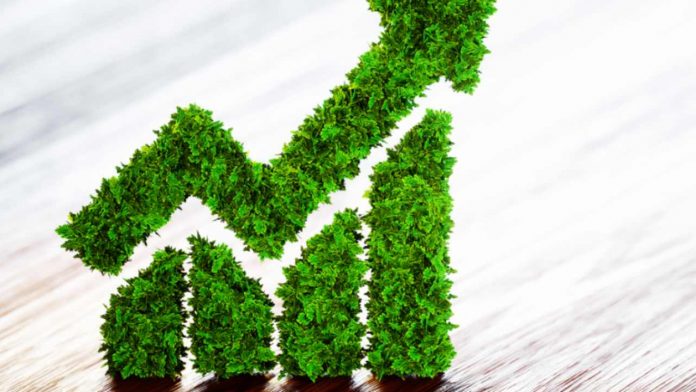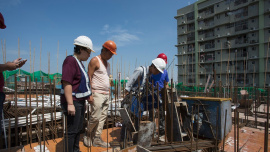As mentioned in my latest article, economic diversification is certainly a key component to reach a sustainable economic development. Diversification is very important for both Hong Kong and Macau.
I also explained that the last two years in Hong Kong have not been easy, since 2019 proved to be one of Hong Kong´s most traumatic periods due to civil unrest, and 2020/2021 have not been any easier thus far due to the COVID-19 pandemic.
As to Macau, despite not suffering the hardships that Hong Kong went through in 2019, and despite controlling the COVID-19 pandemic remarkably well, the former Portuguese colony is not immune to the consequences of the pandemic.
For example, tourist arrivals in Macau have dramatically dropped in 2020, as well as the gambling revenues, which plunged 70.5 per cent in November YoY. Consequently, the first priority for Macau (and, to some extent, opportunity) is to mitigate the economic effects of the pandemic, and one of the many possible ways to do so would be by embracing Green Finance.
Green Finance, according to the UN Environment Program, aims to “increase level of financial flows (from banking, micro-credit, insurance and investment) from the public, private and not-for-profit sectors to sustainable development priorities. A key part of this is to better manage environmental and social risks, take up opportunities that bring both a decent rate of return and environmental benefit and deliver greater accountability.” The COVID-19 pandemic has shown us (if there was any doubt before) that achieving a sustainable development is more necessary than it has ever been.
Related to this, the green bond markets have been going strong for over a decade. Since the green bond market first opened in 2007, more than USD$1 trillion worth of green bonds have been issued globally as investors have started to see a sustainable and profitable investment option. Actually, oversubscription – where demand has exceeded the number of green bonds available – has become the norm for green bond issuances.
So far, Hong Kong is much more advanced than Macau when it comes to embracing the opportunities offered by Green Finance and Green Bonds (which makes perfect sense, given the fact that Hong Kong is one of the world´s leading financial centers, whereas Macau´s transition into finance is just starting).
In June 2018, the Government launched the Green Bond Grant Scheme to subsidize eligible green bond issuers in obtaining certification under the Hong Kong Quality Assurance Agency’s (HKQAA) Green Finance Certification Scheme. In September 2018, the Hong Kong Green Finance Association was set up, bringing together some 100 market practitioners and business front runners to promote Hong Kong as a green finance capital.
After that, in August 2020, Financial Secretary Paul Chan, during his budget speech, announced that the HK government would be issuing HKD$66 billion (USD$8.5 billion) in green bonds in the coming 5 years.
And, only a few weeks ago, the HK Government launched green bonds worth US$2.5 billion, to be available on the Hong Kong Stock Exchange and the London Stock Exchange on February 2, under the Government Green Bond Program.
The offering includes US$1 billion 5-year bonds at 0.635%, US$1 billion 10-year bonds at 1.414% and US$500 million 30-year bonds at 2.431%.
Leaving aside the figures, what is more important about this offering is the fact that, according to the data provided by a press released issued by the Hong Kong Monetary Authority (HKMA) on January 27, the 30-year tranche is also the first 30-year green bond to be issued by an Asian government, and the longest tenor to be issued by the HKSAR Government, which means that Hong Kong is at the forefront of Green Finance in Asia.
The deal attracted strong interest from a diverse group of conventional and green investors: Asian institutional investors were allocated 65% of the total, investors from Europe were allocated 20% and US investors received 15% of the total.
In this sense, the HKSAR Government published its Green Bond Framework in 2019, which sets out how green bond proceeds will be used to fund projects that will improve the environment and facilitate the transition to a low carbon economy.
Undoubtedly, Hong Kong is striving to become a hub for green finance. As stated by Hong Kong´s Chief Executive Carrie Lam Cheng Yuet-ngor on her remarks at the Hong Kong Quality Assurance Agency Online Symposium – Sustainable Finance Hong Kong 2020 on October 23, “many global problems that governments around the world are coping with call for sustainable development. To name a few, climate change, water shortage, food supply and as illustrated by the COVID-19 pandemic, public health. Sustainable development needs funding and investment and we are seeing growing demands for financial options and solutions. (…) Being an international financial centre, Hong Kong is well positioned to offer the needed financial services and capture the opportunities available.”
Furthermore, Hong Kong is in a perfect position to leverage its involvement in the Greater Bay Area (GBA) blueprint to serve as the GBA Green Finance Centre.
What about Macau, though?
As I mentioned before, Macau´s green finance scene is not as advanced as Hong Kong´s one, even though there have been some movements in this area. For example, in October 2019 In October, the Bank of China in Macau carried out ‘green’ bond issues worth RMB 7 billion (US$876.8 million) in three currencies (dollar, euro and renminbi).
Given the fact that the Macau Government promotes economic diversification and at the same time advocates low-carbon and sustainable development, green finance would be a very interesting area for Macau to focus as part of its future shift towards finance. In this sense, green finance has been pointed out by the Macau authorities as one of the bets for a future renminbi stock market to develop “a modern financial industry, diversification of the economy and strengthening cooperation projects between China and Portuguese-speaking countries”.
Therefore, Macau should leverage its belonging in the Portuguese-speaking world to try to take advantage of the many opportunities offered by Green Finance.
To sum up, the COVID-19 pandemic has shown the world that the need for a more sustainable future is real and immediate, therefore green finance is more necessary than ever. Hong Kong is already becoming a very important hub for green finance and it should keep moving forward, whereas Macau is at an early stage in this area, compared to HK, but it has plenty of room to grow as well, given Macau´s current focus in finance and given Macau´s connection with the Portuguese-speaking world.
The author works as a FinTech Advisor and Researcher. He holds an MBA and a doctorate in Hong Kong real estate law and economics. He has worked as a business analyst for a Hong Kong publicly listed company and he has given seminars at HKU on Shadow Banking in China and at several universities in Macau on China´s new digital yuan. He is currently a member of the Blockchain, Digital Banking and Greater Bay Area Committees at the Fintech Association of Hong Kong (FTAHK).





















